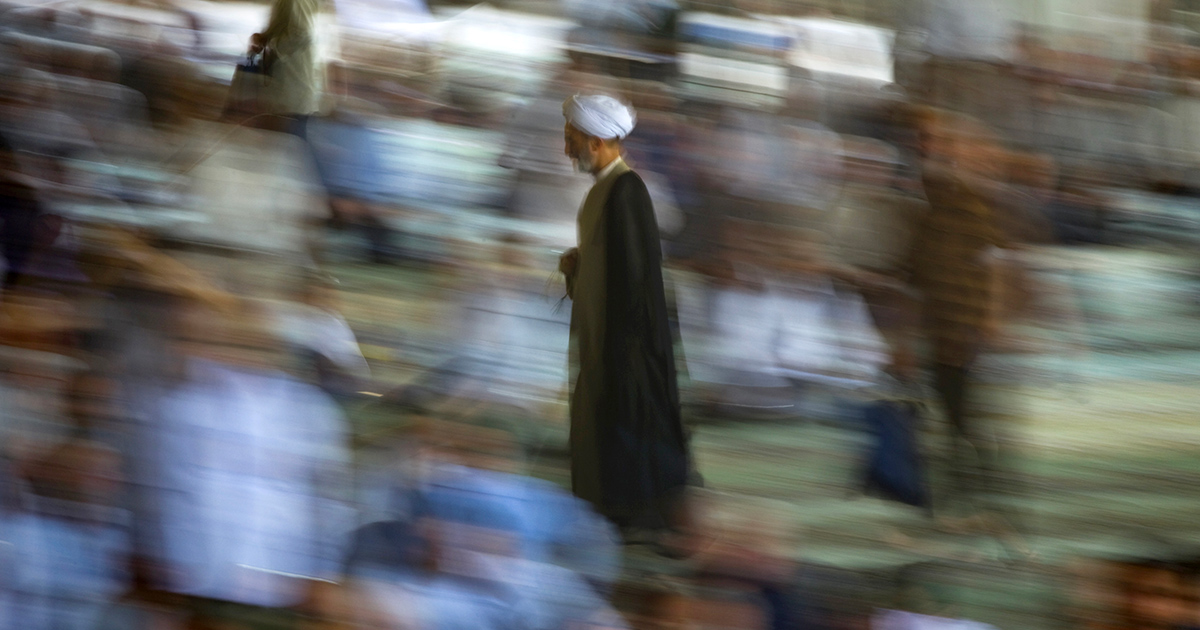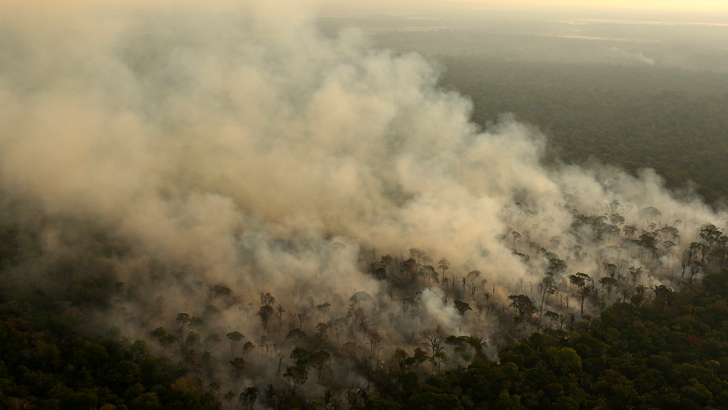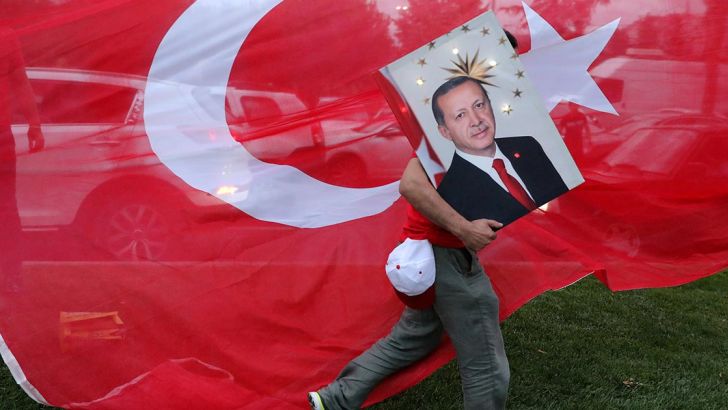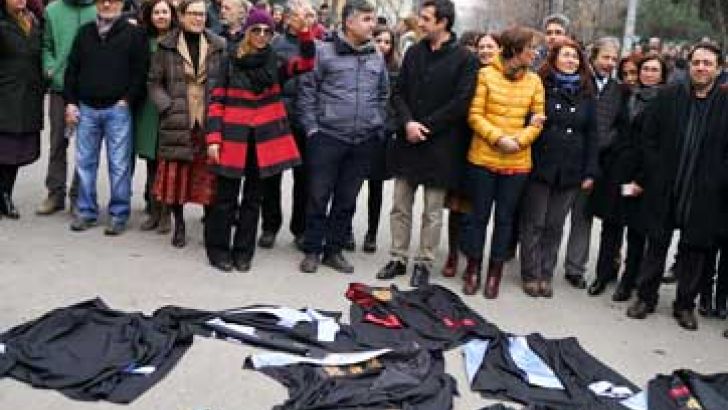UNIVERSITÀ E SCUOLA
Stories of Resistance: Advocating for Women's Education and Academic Freedom in Iran and Afghanistan

Foto: Reuters
The history of student activism in Iran is a testament to the country's tumultuous political landscape and the enduring spirit of its youth. From the 1979 Iranian Revolution to the present day, student activism has been at the forefront of political dissent and social reform. Initially, students supported the revolution but soon they faced repression as Iran experienced a "Cultural Revolution" (1980-1983), aimed at Islamizing universities and purging Western influences. This period saw the closure of universities, dismissal of many professors, and a significant restructuring of curricula to align with Islamic principles. The intense ideological fervor of this period suppressed intellectual diversity and academic freedom, impacts that continue to resonate in Iran’s academic landscape today.
In recent years, despite renewed conservative crackdowns under the recently deceased president Ebrahim Raisi, students continue to protest, often using digital platforms to organize. The death of Mahsa Amini in 2022, after her arrest by the morality police, sparked massive nationwide protests, with students and women playing a leading role. These protests became known as the Woman, Life, Freedom” movement, the slogan originating from a Kurdish feminist mantra which symbolizes the struggle against gender oppression and broader civil liberties issues. Women and female students have been at the forefront, engaging in symbolic acts like cutting their hair and burning hijabs to protest forced hijab laws and gender-based discrimination. Despite significant risks, including detention and expulsion from universities, their activism has maintained the movement's momentum and visibility as campuses across Iran became epicenters of protests.
Similarly, in Afghanistan, women have been struggling for their right to education, particularly since the Taliban's return to power in August 2021. Under the Taliban regime, girls are banned from attending secondary school and places of higher education, making Afghanistan the only country in the world with such restrictions. Afghani women and girls have continued to protest and advocate for their right to education, often facing violence and severe penalties from the regime.
Education is a pivotal theme in both movements. In Iran, female students have been key players in the protests, using academic settings to organize and advocate for change. In Afghanistan, the ban on girls' education is a direct attack on their future prospects and societal participation. The activists in both countries recognize that education is essential for empowering women and achieving long-term societal transformation.
The "Woman, Life, Freedom" movement in Iran and the fight for women's education in Afghanistan are interconnected battles against gender oppression and authoritarianism and represent powerful examples of how women's activism is crucial in confronting and dismantling oppressive systems. These movements underscore the interconnectedness of women's rights issues across borders, highlighting a global struggle for equality, education, and freedom and showcase the courage and determination of women who refuse to be silenced or sidelined.
The struggle for academic freedom is a central theme in both Iran and Afghanistan, though the challenges each country faces are different. In Iran, the state's efforts to control universities and suppress dissent have created an environment where intellectual diversity is stifled, and critical thinking is often punished. Academic freedom—the right of scholars to pursue truth and express ideas without fear of repression—is essential for a healthy, dynamic educational system. The lack of such freedom in Iran curtails the development of new ideas, inhibits critical discourse, and hampers the growth of a knowledge-driven society. If you want to learn more about academic freedom and its significance, we invite you to read this article.
The situation in Taliban-controlled Afghanistan, however, presents an even more dire challenge. Beyond the suppression of academic freedom, the Taliban violate the fundamental right of women to receive an education. This extreme denial of basic educational rights further exacerbates the crisis of academic freedom, severely limiting the country’s intellectual and social development potential.
In contexts where academic freedom is compromised, such as in Iran and Afghanistan, the ability to engage in critical thinking, research, and open discourse is severely restricted. This suppression not only hinders individual academic growth but also stifles societal progress and innovation. By advocating for academic freedom, we advocate for a global educational landscape where all students and scholars can thrive, contribute meaningfully to their fields, and challenge oppressive structures and regimes.
As student advocates attending the SAR Student Advocacy Seminar, we will take proactive measures by engaging with the University of Padova's Global Engagement Office and Admission and Welcome Unit to address the critical issue of educational accessibility for students from high-risk countries or refugee backgrounds. Our goal is to emphasize that students, women in particular, from backgrounds such as Iran and Afghanistan face significant barriers to accessing higher levels of education. Through this initiative, we aim to advocate for concrete changes in order to make tertiary education more accessible and inclusive for these students as well as advocate for an increase in the number of scholarships that the University of Padua provides for at-risk students.
Scholars at Risk (SAR) Italy is part of a global network dedicated to protecting academic freedom and supporting at-risk scholars worldwide. The Italian section of SAR was officially launched on February 19, 2019, at the University of Padova. This initiative is a collaboration among several Italian higher education institutions and research centers, united in their commitment to uphold academic freedom and provide sanctuary to scholars facing threats in their home countries. For a practical example of how Italy can become a second home for at-risk scholars from countries like Iran and Afghanistan you can read about the experience of an Afghani law professor and human rights activist in the following article.
Starting from 2020, the University of Padua in collaboration with SAR organizes a Student Advocacy Seminar, which in 2023 became a general course. This year’s edition will culminate with the Student Advocacy Day, open to everyone, taking place at Beato Pellegrino Complex in Aula 9 on the 10th of June beginning at 14:30. The main goal of this year’s event will be to raise awareness on the situation of students and academics in Iran and Afghanistan, with a special focus on women’s right to education and academic freedom. For more information about the previous editions of the Student Advocacy Seminar and their impact you can read the following article.
This year’s Student Advocacy Day will feature speeches from Afghani women and testimonials highlighting the experiences of the Afghani students at the University of Padova. Additionally, a screening of the film "Refugee Girls", will take place in order to focus the discussion on the accessibility of education for at-risk students. Leonardo Cinieri Lombroso, the director of the film, will also be present at the event.
On the Iranian side of things, the focus of the discussion will be on the challenges encountered by scholars and students in Iran, with a particular emphasis on the experiences of women. The event will include an exhibition showcasing individual cases which collectively illustrate the constraints on academic freedom in Iran, alongside the repercussions faced by those who dissent. Additionally, music composed by students will be featured, providing a peaceful expression of resistance against the Islamic Regime.
For Unipd students interested in taking concrete actions, there will be an opportunity to sign up to be a Mentor (buddy) for refugee students in Padova with Refugees Welcome Italy on the Student Advocacy Day.




